Mudanjiang Jingpo Lake: A Hidden Gem for Adventure Seekers and Nature Lovers
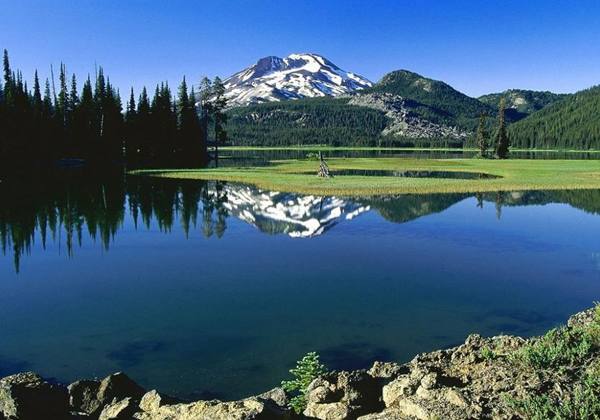
An Essential Guide to Visiting Mudanjiang_Jingpo_Lake
Nestled in the heart of Heilongjiang Province, Jingpo Lake (牡丹江市镜泊湖) is a breathtaking natural wonder that seamlessly blends geological marvels with cultural heritage. Often hailed as one of China’s hidden gems, this stunning lake is not merely a picturesque destination; it is a UNESCO-recognized site that tells a story of volcanic activity and natural beauty. From the moment you arrive, the lush landscapes, serene waters, and dramatic waterfalls envelop you in a tranquil embrace, providing an ideal escape from the hustle and bustle of urban life.
Imagine embarking on an adventure filled with scenic boat rides across crystalline waters, exploring the remarkable volcanic formations that shape the area, and wandering through ancient forests that whisper tales of the past. Whether you’re a nature enthusiast seeking the thrill of outdoor exploration or a culture seeker eager to learn about the region’s rich heritage, Jingpo Lake offers an abundance of activities and experiences that cater to diverse interests.
As you stroll along the lake’s shores, you may encounter charming Korean folk villages, witness the majesty of the Diaoshuilou Waterfall, or simply bask in the serenity of your surroundings. The area is also dotted with fascinating geological features, such as lava tubes and craters, each waiting to be explored.
Prepare to embark on a journey that transcends mere sightseeing; at Jingpo Lake, every moment is an opportunity to connect with nature, history, and the vibrant culture of Northeast China. Whether you plan to hike the trails, enjoy a leisurely boat ride, or savor local delicacies, this enchanting destination promises to leave you with unforgettable memories.
In This Guide
- An Essential Guide to Visiting Mudanjiang_Jingpo_Lake
- The Rich History and Legends of Mudanjiang_Jingpo_Lake
- Main Highlights: What You Absolutely Can’t Miss
- Planning Your Visit: A Practical Guide
- Tickets: Prices, Booking, and Tips
- How to Get There: A Complete Transportation Guide
- Local Cuisine and Accommodation Nearby
- Frequently Asked Questions
- Final Thoughts on Your Trip
The Rich History and Legends of Mudanjiang_Jingpo_Lake
Nestled in the northeastern region of China, Mudanjiang Jingpo Lake is not only a stunning natural wonder but also a site steeped in rich history and captivating legends. This beautiful lake, formed approximately 5,000 years ago, owes its existence to a series of volcanic eruptions that created a natural dam, blocking the flow of rivers and creating a breathtaking expanse of water surrounded by lush landscapes and towering mountains. Today, it is recognized as a UNESCO Global Geopark, celebrating both its geological significance and cultural heritage.
The area surrounding Jingpo Lake is infused with local lore and history, particularly linked to the indigenous Korean community. As visitors approach the lake, they encounter a Korean folk village, which serves as a vibrant reminder of the cultural intersections that define this region. Here, travelers can experience traditional Korean architecture, cuisine, and customs, offering a unique glimpse into the lives of those who have called this landscape home for generations.
One of the most enchanting stories tied to Mudanjiang Jingpo Lake is that of the Diaoshuilou Waterfall, which cascades dramatically into the lake below. Legend has it that a beautiful young woman named Jingpo was deeply in love with a brave warrior. However, their love was forbidden, leading to a tragic end. Heartbroken, Jingpo transformed into the waterfall, her tears flowing endlessly into the lake, symbolizing the enduring nature of love and loss. This poignant tale adds a layer of emotional depth to the already stunning scenery.
The lake itself is often surrounded by myths of magical creatures and natural spirits that are said to inhabit the waters and forests. Local folklore speaks of a dragon that once roamed the lake, guarding its treasures and ensuring the safety of the surrounding villages. The dragon is believed to bring good fortune to those who respect the natural world, further emphasizing the importance of harmony between humans and nature in this culturally rich area.
Over the years, Mudanjiang Jingpo Lake has become a beloved destination for both locals and international travelers, drawn not only by its breathtaking beauty but also by the legends that enrich its landscape. The lake’s volcanic origins and the stories woven through its history reflect the deep connection between the land and its people, inviting visitors to explore and appreciate the cultural tapestry that defines this unique corner of China. Whether you’re hiking the scenic trails, taking a boat ride across the tranquil waters, or simply soaking in the serene atmosphere, Mudanjiang Jingpo Lake offers an immersive experience that resonates with the echoes of its storied past.

Mudanjiang_Jingpo_Lake.
Main Highlights: What You Absolutely Can’t Miss
Mudanjiang’s Jingpo Lake is a breathtaking natural wonder that offers a unique blend of scenic beauty, geological significance, and cultural heritage. Here are the main highlights that you simply cannot miss during your visit:
1. Jingpo Lake Itself
The centerpiece of the area, Jingpo Lake, is renowned for its stunning crystal-clear waters, which are framed by lush greenery and towering mountains. This ancient volcanic lake, formed approximately 5,000 years ago, invites visitors to explore its beauty through various activities, including serene boat rides that allow you to soak in the picturesque landscapes.
2. Diaoshuilou Waterfall
One of the most captivating sights around Jingpo Lake is the Diaoshuilou Waterfall. Cascading dramatically into the lake, this waterfall creates a stunning spectacle, especially during the spring melt when the water flow is at its peak. A visit to this waterfall is a must; it’s the perfect spot for photography enthusiasts and nature lovers alike.
3. Korean Folk Village
As you enter the Jingpo Valley, make sure to stop by the Korean Folk Village. This cultural site showcases traditional Korean architecture and lifestyle, offering insights into the area’s rich heritage. Engage with local artisans, sample authentic cuisine, and experience cultural performances that celebrate the history of the Korean community in the region.
4. Volcanic Crater Forest
For adventure seekers, the Volcanic Crater Forest is an exceptional destination. Embark on a hike through the extinct volcanic crater, where you’ll encounter lush forest trails and unique geological formations. The varying landscapes and serene atmosphere make it an ideal spot for hiking and exploring the region’s volcanic origins.
5. Boat Rides on Jingpo Lake
Taking a boat ride on Jingpo Lake is an experience not to be missed. While larger boats can be crowded, opting for a personal boat allows you to enjoy the tranquility of the lake at your own pace. Witness the stunning views of the surrounding mountains and the vibrant flora and fauna that thrive in this ecological haven.
6. Lava Tubes and Caves
The geological features around Jingpo Lake are fascinating, particularly the lava tubes that formed during ancient volcanic eruptions. These caves offer an intriguing glimpse into the earth’s geological history. Guided tours are available for those interested in learning more about these natural wonders.
7. Interpretation Boards and Geopark Information
As part of the UNESCO Global Geopark network, Jingpo Lake is home to numerous interpretation boards throughout the area. These informative displays help visitors understand the geological processes that shaped the landscape, making your visit both educational and enriching.
8. Local Cuisine and Markets
Don’t miss the opportunity to indulge in local cuisine at nearby restaurants and food stalls. The region is known for its delicious dishes made from locally sourced ingredients, including rice grown in volcanic soil, which adds a unique flavor profile. Explore local markets for souvenirs and handicrafts that reflect the cultural richness of the area.
9. Scenic Hiking Trails
Jingpo Lake is surrounded by scenic hiking trails that cater to all skill levels. Whether you’re looking for a leisurely stroll or a more challenging hike, the trails offer breathtaking views of the lake, the surrounding mountains, and the diverse wildlife that inhabits the area.
10. Photography Opportunities
Finally, bring your camera! From the mesmerizing colors of the lake at sunrise and sunset to the majestic Diaoshuilou Waterfall, every corner of Jingpo Lake presents a postcard-perfect moment. Capture the natural beauty and unique cultural elements to remember your trip long after you’ve left.
Visiting Jingpo Lake is an unforgettable experience that combines natural beauty, adventure, and cultural exploration. Make sure to include these highlights in your itinerary for a truly memorable journey!
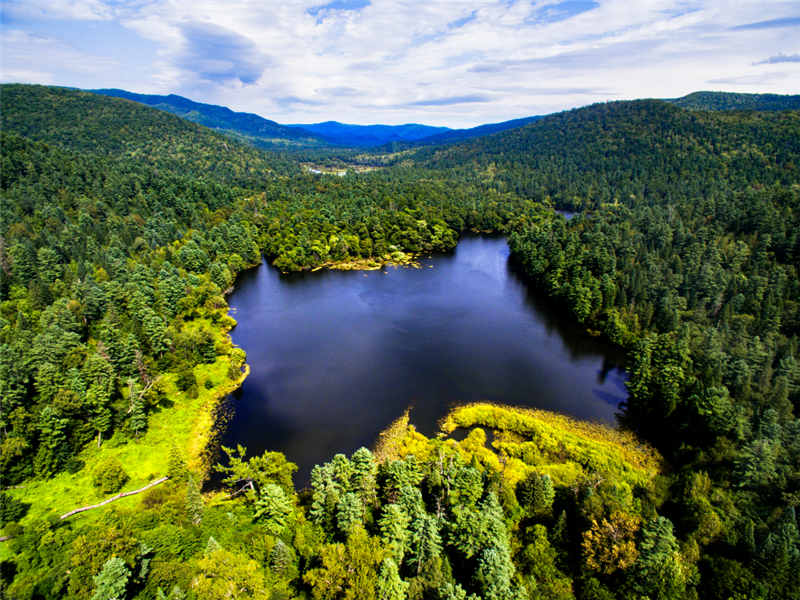
Mudanjiang_Jingpo_Lake.
Planning Your Visit: A Practical Guide
Planning Your Visit to Mudanjiang Jingpo Lake
Mudanjiang Jingpo Lake, a stunning natural wonder nestled in Heilongjiang province, is an extraordinary destination for travelers seeking both adventure and tranquility. To make the most of your visit, here’s a practical guide that covers everything from transportation and accommodation to activities and essential tips.
Getting There
By Air:
The nearest major airport is Mudanjiang Airport (MDG), which is about an hour’s drive from Jingpo Lake. The airport has regular flights to and from Beijing, making it accessible for international travelers.
By Train:
Mudanjiang also has a railway station with connections to several major cities in China. Once you arrive in Mudanjiang, you can take a bus or taxi to Jingpo Lake.
By Car:
If you prefer to drive, renting a car is a convenient option. The lake is approximately 80 kilometers from Mudanjiang and offers beautiful scenic views along the route.
Best Time to Visit
The ideal time to visit Jingpo Lake is from late spring to early autumn (May to September). During these months, the weather is pleasant, making it perfect for outdoor activities such as hiking, boating, and exploring the surrounding nature. The fall season offers breathtaking foliage, while winter transforms the area into a winter wonderland, ideal for those who enjoy snow activities.
Accommodation Options
Hotels:
There are several hotels and guesthouses in the vicinity, ranging from budget to luxury options. Popular choices include:
- Jingpo Lake Resort Hotel: A comfortable hotel located near the lake, offering stunning views and easy access to various attractions.
- Local Guesthouses: For a more authentic experience, consider staying in one of the local guesthouses, where you can enjoy traditional hospitality.
Camping:
For the adventurous spirit, camping near the lake is an option. Make sure to check local regulations and prepare adequately for a safe experience.
Activities to Enjoy
-
Boat Rides: Explore the serene waters of Jingpo Lake by renting a personal boat. This is a great way to enjoy the stunning landscapes and capture breathtaking photos. Be cautious of boat drivers offering extra fees for extended rides, as the standard tour often suffices.
-
Hiking: The area surrounding Jingpo Lake is rich in trails, some leading to the famous Diaoshuilou Waterfall. Hiking offers a chance to immerse yourself in nature and discover unique geological features.
-
Visit the Korean Folk Village: Located at the entrance of Jingpo Valley, this village showcases the rich cultural heritage of the region and is a great place to learn about local traditions.
-
Explore Geological Features: Jingpo Lake is a UNESCO Global Geopark. Take time to explore the lava tubes, extinct craters, and interpretative boards that explain the geological history of the area.
-
Photography: With its stunning landscapes, waterfalls, and unique rock formations, Jingpo Lake is a paradise for photographers. Don’t forget to capture the sunset over the lake for a truly magical experience.
Dining Options
While dining options directly at Jingpo Lake may be limited, nearby towns like Ning’an offer various restaurants serving local Chinese cuisine. Be sure to try regional specialties, including dishes made with local volcanic rice, known for its unique flavor.
Tips for a Successful Visit
- Stay Hydrated: Bring plenty of water, especially if you plan to hike or engage in outdoor activities.
- Dress Appropriately: Wear comfortable clothing and sturdy shoes suitable for hiking. The weather can change quickly, so layers are advisable.
- Plan Your Day: Arrive early to maximize your time exploring. Popular attractions can get crowded, especially during weekends and holidays.
- Respect Nature: Leave no trace and be mindful of your environmental impact. Stay on marked trails and dispose of waste properly.
With this guide in hand, you’re ready to embark on an unforgettable journey to Mudanjiang Jingpo Lake. Whether you are drawn by its natural beauty, geological wonders, or cultural richness, this destination promises a unique experience that will leave lasting memories. Safe travels!
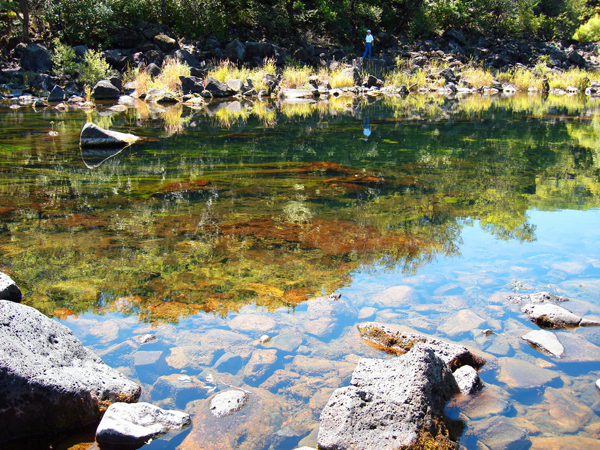
Mudanjiang_Jingpo_Lake.
Tickets: Prices, Booking, and Tips
When planning a visit to the breathtaking Jingpo Lake (牡丹江市镜泊湖景区), it’s essential to know the ticketing details to ensure a smooth experience. The lake is not only a natural wonder but also a UNESCO-recognized site, making it a must-see for international travelers.
Ticket Prices
Entry to Jingpo Lake typically costs around ¥60 (approximately $9 USD) for adults. Children and seniors may receive discounted rates, so it’s worth checking the latest prices at the entrance or online.
Booking Information
Tickets can be purchased on-site, but for convenience, especially during peak tourist seasons, you might want to consider booking in advance through official tourism websites or local travel agencies. Some tours that include boat rides and guided excursions around the lake can also be pre-booked, often providing additional savings.
Tips for a Successful Visit
-
Boat Rides: One of the highlights at Jingpo Lake is the boat ride, which generally costs around ¥200 (about $30 USD) for a private boat for up to four people. Opting for a private boat is recommended to enjoy a more personalized experience, though be cautious of additional charges for extended rides or extra services that may not be necessary.
-
Timing Your Visit: The best time to visit is during the warmer months from late spring to early autumn when the weather is pleasant for hiking and exploring the surrounding areas. The lake is open year-round, but certain activities may be limited in winter.
-
Explore Beyond the Lake: Don’t forget to explore the nearby attractions such as the stunning Diaoshuilou Waterfall and the volcanic rock formations. These add to the overall experience and can often be included in guided tours.
-
Plan for Crowds: Jingpo Lake is a popular destination, so visiting early in the morning or later in the afternoon can help you avoid the busiest times and enjoy a more tranquil experience.
-
Prepare for Nature: Bring comfortable walking shoes for the trails, and consider packing a picnic to enjoy by the lake or waterfall, as there are lovely spots to relax amidst nature.
By keeping these ticketing tips and recommendations in mind, travelers can fully enjoy the stunning beauty and unique experiences that Jingpo Lake has to offer.
How to Get There: A Complete Transportation Guide
Reaching the breathtaking Jingpo Lake in Mudanjiang, Heilongjiang Province, is an adventure worth the journey. Nestled in a stunning volcanic landscape, this UNESCO Global Geopark offers a feast for the eyes and a retreat into nature. Here’s how to navigate your way to this enchanting destination, whether you’re coming from afar or nearby.
By Air
The most convenient way to arrive is via Mudanjiang Airport (MDG), which is located just about an hour’s drive from Jingpo Lake. This airport has regular domestic flights to major cities, including Beijing, Harbin, and Shanghai. Once you arrive at Mudanjiang Airport, you can easily find transportation options to reach Jingpo Lake.
By Train
If you prefer to travel by train, Mudanjiang is well-connected by rail. The Mudanjiang Railway Station offers services from various parts of China. For example, trains frequently run from Harbin, which is a popular entry point into the region. Upon arriving at the station, you can take a taxi or local bus to Jingpo Lake, which is approximately 80 kilometers away.
By Bus
For travelers on a budget, buses are a practical choice. You can take a bus from Mudanjiang City to Ning’an, the closest town to Jingpo Lake. Buses run regularly throughout the day, and the trip takes about 2-3 hours. From Ning’an, local taxis or ride-sharing services can take you the remaining distance to the lake.
By Car
If you’re up for a scenic drive, renting a car is an excellent option. The roads leading to Jingpo Lake are well-maintained and offer stunning views of the surrounding volcanic landscapes. The drive from Mudanjiang City to Jingpo Lake takes roughly one hour. Be sure to have a GPS or a reliable map on hand, as road signs may primarily be in Chinese.
Local Transportation
Once you arrive at Jingpo Lake, there are several ways to get around:
- Shuttle Buses: The area offers shuttle services that connect various attractions around the lake, including the famous Diaoshuilou Waterfall and the Korean Folk Village.
- Boat Rides: Exploring the lake by boat is a popular activity. Various boat rental services are available, but be mindful of the pricing and duration of the rides to ensure you get the best value for your experience.
- Walking Trails: For those who enjoy hiking, Jingpo Lake features several scenic walking trails that allow you to immerse yourself in the stunning natural beauty.
Travel Tips
- Language: While Mandarin is the primary language spoken, you may encounter some English-speaking locals, especially in tourist areas. It’s helpful to learn a few common phrases in Mandarin.
- Timing Your Visit: The best time to visit Jingpo Lake is during the summer months (June to August) when the weather is pleasant, and the flora is in full bloom. However, if you prefer fewer crowds, consider visiting in the shoulder seasons of spring or autumn.
- Cash is King: While larger establishments may accept credit cards, it’s advisable to carry some cash, as small vendors and local transport may only accept cash payments.
With these transportation options and tips, your journey to the mesmerizing Jingpo Lake is sure to be smooth and enjoyable. Whether you’re hiking along its tranquil shores or taking in the majestic waterfalls, the experience will undoubtedly be unforgettable. Safe travels!
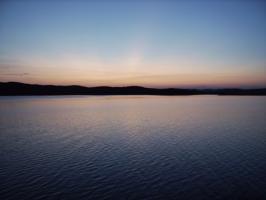
Mudanjiang_Jingpo_Lake.
Local Cuisine and Accommodation Nearby
When visiting the stunning Jingpo Lake, your experience can be enhanced not only by the breathtaking natural beauty but also by indulging in the local cuisine and comfortable accommodations nearby.
Local Cuisine
The area around Jingpo Lake offers a delightful array of culinary experiences, perfect for adventurous eaters and those looking to savor regional flavors. One of the highlights is the local Korean cuisine, which reflects the cultural heritage of the region. At the Korean Folk Village, located at the entrance of Jingpo Valley, you can enjoy traditional dishes such as Kimchi Jjigae (kimchi stew) and Bulgogi (marinated beef), often prepared with fresh local ingredients.
If you’re in the mood for something more casual, head to the lakeside eateries that serve grilled fish caught from the lake itself, often seasoned with local spices and herbs. Don’t miss the chance to try volcanic rice, a unique dish that showcases the rich, mineral-laden soil of the region, giving the rice a distinctive flavor.
For those who have a sweet tooth, local vendors offer delicious rice cakes and sweet dumplings filled with various fillings, perfect for a snack while you explore the area.
Accommodation Nearby
After a day of exploration, you’ll want a comfortable place to unwind. Here are some recommended accommodations that cater to various preferences:
-
Jingbo Lake Resort Hotel: Located right by the lake, this hotel offers stunning views and easy access to recreational activities. Rooms are comfortable, and the on-site restaurant features a mix of local and international dishes, making it a perfect base for your adventures.
-
Ning’an Hotel: A short drive from the lake, this hotel combines modern amenities with traditional Chinese hospitality. The rooms are spacious, and the hotel offers a range of services, including guided tours of the nearby attractions.
-
Korean Folk Village Inn: For a unique experience, consider staying at this inn, which immerses you in the local culture. Enjoy traditional Korean-style accommodations and meals, making it a great choice for travelers looking to connect with the area’s heritage.
-
Mudanjiang City Center Hotels: If you prefer to stay in Mudanjiang, several comfortable hotels are available, providing easy access to Jingpo Lake and other attractions. These hotels often offer package deals that include meals and guided tours.
Whether you’re savoring the rich flavors of local dishes or relaxing in welcoming accommodations, your visit to Jingpo Lake will surely be a memorable one. Enjoy your culinary adventures and restful nights as you explore this beautiful region!
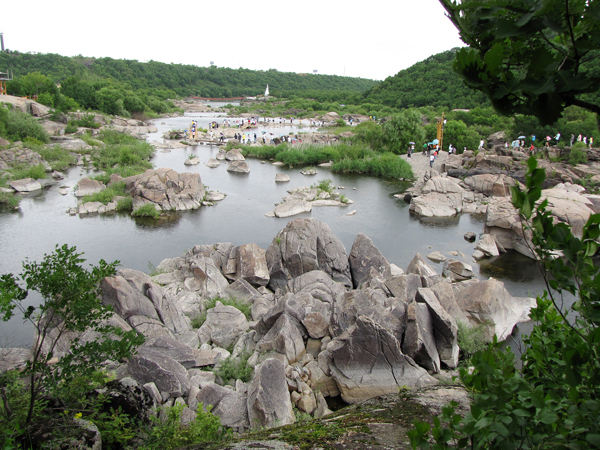
Mudanjiang_Jingpo_Lake.
Frequently Asked Questions
-
What is the best time to visit Jingpo Lake?
The ideal time to visit Jingpo Lake is during summer (June to August) when the weather is warm and the natural scenery is at its finest. Fall (September to October) also offers beautiful foliage, making it a lovely time for hiking and photography. Winter visits can be magical but be prepared for cold temperatures! -
How do I get to Jingpo Lake from Mudanjiang?
Jingpo Lake is approximately a one-hour drive from Mudanjiang City. You can take a taxi or hire a private car. Public transport options may be available, but they can be less frequent. If you prefer a guided experience, consider booking a tour that includes transportation. -
Are there accommodations near Jingpo Lake?
Yes, there are various accommodation options near Jingpo Lake, ranging from hotels to guesthouses. It’s recommended to book in advance, especially during peak travel seasons, to secure your preferred lodging. -
What activities can I do at Jingpo Lake?
Visitors can enjoy a range of activities such as taking boat rides on the lake, hiking the scenic trails, exploring the nearby Diaoshuilou Waterfall, and visiting the Korean folk village at the entrance of Jingpo Valley. The area is also known for its unique geological formations, making it a great spot for exploration. -
Is there an entrance fee for Jingpo Lake?
Yes, there is typically an entrance fee to access Jingpo Lake and its surrounding attractions. The fee may vary depending on the season and specific activities you wish to partake in, so it’s advisable to check current rates before your visit. -
Can I visit Jingpo Lake in the winter?
Absolutely! Jingpo Lake offers a different but beautiful experience in winter, with opportunities for ice-related activities. However, be sure to check local conditions and accessibility, as some areas may be closed or require special equipment for safe exploration. -
What should I bring with me for a day trip to Jingpo Lake?
It’s recommended to bring comfortable walking shoes, water, snacks, a camera, sunscreen, and a hat. If you plan to hike or spend extended time outdoors, consider packing a picnic lunch and extra layers for changing weather conditions. -
Are there dining options available at Jingpo Lake?
Yes, there are several dining options around Jingpo Lake, including local restaurants and cafes. You can enjoy traditional Chinese dishes, as well as some Korean cuisine due to the area’s cultural influences. However, options may be limited, so consider bringing snacks or meals for a picnic if you plan to spend the day exploring.
Final Thoughts on Your Trip
As your journey to Jingpo Lake comes to a close, you’ll find that the memories crafted here are as enduring as the stunning landscapes that surround you. This UNESCO-recognized gem is not just a feast for the eyes, but a sanctuary for the soul, where the harmonious blend of nature, culture, and history creates an unparalleled experience. Whether you’ve admired the majestic Diaoshuilou Waterfall, navigated the tranquil waters on a private boat, or wandered through the enchanting trails lined with intriguing statues, each moment spent at Jingpo Lake is a reminder of nature’s beauty.
Engaging with the local lore, indulging in the flavors of the region, or simply soaking in the serene ambiance, you have tapped into the essence of Mudanjiang’s breathtaking allure. As you prepare to leave, let the tranquil whispers of the lake and the vibrant hues of its surroundings resonate in your heart, inspiring you to share your tales of adventure and discovery. Remember, this enchanting destination is not just a place to visit; it’s a memory to cherish—a reminder that the world is filled with remarkable wonders waiting to be explored. Safe travels, and may your next adventure be just as breathtaking!